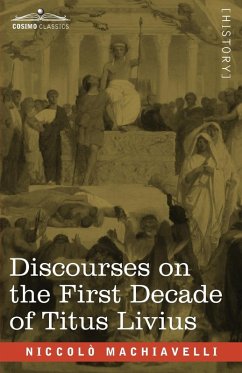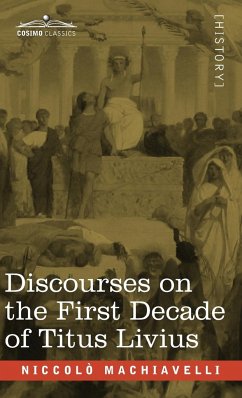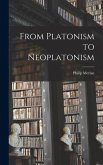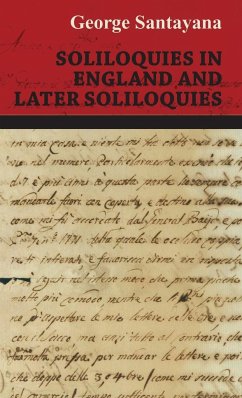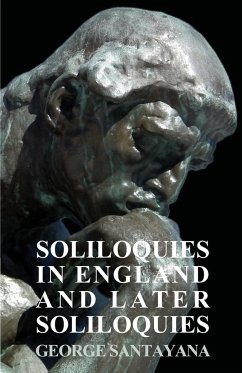"Everything that occurs in the world, in every epoch, has something that corresponds to it in ancient times." -Niccolò Machiavelli, Discourses, 1517 Discourses on the First Decade of Titus Livius (1517), by Italian philosopher and diplomat Machiavelli, is considered by many a foundational text of modern republicanism. As an admirer of the ancient Romans, Machiavelli believed history was a way to learn useful lessons for the present. In this book, he describes how to build a republic inspired by the writings of Roman historian Titus Livius (64 BC-AD 12). The current edition was translated by Ninian Hill Thomson and originally released in 1883. It is essential reading for students of political philosophy, political leaders, and anyone interested in understanding the author's political beliefs.

